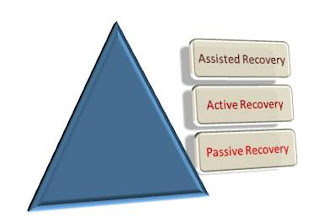Supplements and Sport
I wrote this post 6 months ago but didn't post it.
There are a few reasons why I wrote this blog post. Firstly, a perceived issue of what supplements are, secondly a medical check up, and thirdly the topic has recently become a hot topic in the media.
The past six months, I have been involved in organising
seminars, for the sport of track and field.
One of the seminars we wanted to hold entitle ‘Nutrition and Seminar’
One of the seminars we wanted to hold entitle ‘Nutrition and Seminar’
After advising the head body, of the sporting organisation,
that we intended on having this seminar, they advised us that we were not
allowed to have the seminar with anything to do with supplements, whilst there
name and facilities were involved.
The other event, was my 40th birthday, were I
undertook a full medical with blood tests.
Two of the results, actually four, came back a little bit worse for
wear. The two in this discussion are the
results of Vitamin D and Iron tests undertaken
The Vitamin D level wasn’t really
a surprise, as I work in an office and during winter see very little sun during
the day, the cancer council of Tasmania suggest up to 2/3rd’s of the
population suffer vitamin D deficiency in Winter and a 1/3rd during
Summer (http://www.cancertas.org.au/healthy-living/sunsmart)
The Iron test was a little off putting, as the level was
similar to when I did not eat red meat.
The response from the doctor was to take vitamin D tablets,
and to increase my meat intake.
Supplements have been a hot topic in the sports, and wider,
media with positive tests of banned substances of the world anti doping agency
(WADA) act. These positive tests
included well known International athletes, and local Australian athletes.
Having competed and trained in sport during the late 1980’s
as a junior athlete, and 1990’s as a senior athlete, I am reasonably
comfortable saying I would have trained and competed with and against athletes
who took supplements. I know I took some
supplements, such as creatine.
Whilst researching this blog I came across a number of
sporting bodies that suggested the following basic rule with Anti Doping is the individual is responsible, so
the recommendation of sporting bodies is do
not take any supplements.
Before I begin, I must say I am not an expert, and as such,
this is not advice but my thoughts are based on my understanding. You should seek expert advice on these
matters.
What are supplements?
Definition from http://oxforddictionaries.com/definition/english/supplement
Noun:
- · a thing added to something else in order to complete or enhance it: the handout is a supplement to the official manual
- · a substance taken to remedy the deficiencies in a person’s diet: multivitamin supplements
- · a separate section, especially a colour magazine, added to a newspaper or
Going by the definition of ‘supplements’, it is clear that
it means if you take something that is not from a meal it is a supplement. This means commonly diagnosed deficiencies
such as low vitamin D and Iron levels and the prescribing of Iron and Vitamin D
tablets by doctors are deemed supplements.
The words supplement should be considered a broad brush, such as the
word art and sport.
This blog is going to stay away from the supplements that a
banned under the relevant act.
The question that enters my mind is “do athletes need
supplementation?”
I believe the short answer is yes, most likely they do. The proviso on this is that the athlete has
suitable sleeping and nutrition in place (most don’t)
What supplements should athletes take?
A rudimentary view of the ausports supplements site that looks
at supplements, with an attempt to use research is the following
Supplements are broken up into four Groups
Group
|
Research
|
Provided
|
A
|
Supported for use in specific situations in sport.
|
Provided
for evidence-based uses
|
| B | Deserving of further research. | Considered under a research protocol |
| C | No meaningful proof of beneficial effects. | Not provided to athletes |
| D | Banned or at high risk of contamination. | Should not be used by athletes. |
Group A consists of Sports Drinks/Gels/Confectionary, Whey
Protein, Vitamin D, and Caffeine
Group B consists of Carnitine, Probiotics for immune
support, and fish oils
Group C has Coenzyme Q10, Glucosamine, MCT Oils, and ZMA
Another source that uses research to review different
supplements is http://examine.com/
This site uses the following grading scheme
Grade
|
Level
of Evidence
|
A
|
Robust research
conducted with repeated double blind clinical trials
|
B
|
Multiple studies
where at least two are double-blind and placebo controlled
|
C
|
Single double
blind study or multiple cohort studies
|
D
|
Uncontrolled or
observational studies only
|
It is easier to purchase the PDF off this site, for this
review, and I highly suggest you do so.
Find it here - http://examine.com/store/reference/
Here are links to WADA and the relevant anti doping agencies
of Australia, United States and the United Kingdom
WADA - http://www.wada-ama.org/
Australia - http://asada.gov.au/



Comments
Post a Comment